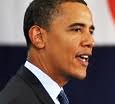State of the Union Part 2: What to listen for in Tuesday’s address
By
Mattea Kramer
Posted:
|
Budget Process
As I mentioned in yesterday’s post, the State of the Union address is important in part because it gives a preview of the president’s forthcoming budget request. (In early February President Obama will release his budget request for fiscal year 2013, which begins on October 1, 2012.) National Priorities Project will release a series of materials analyzing the budget request.
In the meantime, we’ve kept an ear to the ground about what to expect in the president’s 2013 budget, and we’ll be watching the State of the Union on Tuesday night for more information. Here is some prevailing wisdom about what the president’s budget is likely to contain:
- Back in September, President Obama released his plan to create jobs, a legislative proposal called the American Jobs Act. It proposed funneling money to the states to prevent layoffs of public employees like firefighters and teachers. It also proposed tax incentives for employers who hire the long-term unemployed. President Obama recommended offsetting these spending measures by raising taxes on wealthy earners and closing some corporate tax loopholes. Washington insiders expect that the president’s 2013 budget request will contain these kinds of job creation measures, as well as plans to raise taxes on high-income taxpayers.
- The Budget Control Act of 2011—the debt deal passed back in August—imposed spending caps that limit 2013 discretionary spending to $1.047 trillion. Of that total, $546 billion is designated for the military and $501 billion for all other discretionary spending. Last year President Obama’s budget request proposed around $530 billion in non-military discretionary spending. Thus, after accounting for inflation, the Budget Control Act imposes roughly a 7 percent cut to discretionary spending relative to the president’s 2012 request. In other words, for every $100 the president requested last year for spending on education, energy, and other kinds of discretionary programs, his 2013 budget must trim at least $7. It’s expected that the president’s 2013 budget will reflect these spending limits and perhaps cut proposed spending even further than the caps mandate.
These are just speculations, however. Listen to the State of the Union address on Tuesday night to hear more about President Obama’s priorities for the coming year.
